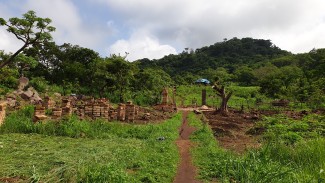The right trade policies would help the world combat current pandemic
Governments around the world are on a steep learning curve as they react to the COVID-19 pandemic.
It is clear that a whole-of-government response is needed. Policy measures that complement and reinforce the effectiveness of public health initiatives are needed.
In times like these, government policies should not be at odds with one another.
Trade policies have relevance in the response to the pandemic for two reasons. First, 50 governments (to date)* have imposed curbs or even bans on the export of needed medical supplies, including face masks, respirators and hand sanitiser. Second, states decide the terms upon which imported medical supplies enter into domestic commerce through, amongst other means, import taxes (tariffs), quotas and buy-national public procurement regulations.
The taxes governments impose on imported soap provide a useful window into the contribution that trade policy can play in fighting – or unfortunately facilitating – the spread of COVID-19. To see why, first the advice from experts at the World Health Organization. Everyone is recommended to thoroughly wash their hands with soap or to use hand sanitiser several times a day. Cheap, available soap is a prerequisite for following this advice, and this is where national trade policy comes in.
World Trade Organization (WTO) member governments are supposed to supply up-to-date information on their import tariffs on all goods, including soap. According to the WTO’s Tariff Download Facility, not every government does so – creating uncertainty for importers and exporters and hampering the international trade in soap. Twenty-two WTO members last reported their import taxes on soap in 2016, and 20 more last updated their records in 2014 or before. This notification deficit is an aggravating factor during the current situation.
There is also the degree to which many governments tax imported soap. In fact, of the 164 WTO members, only nine refrain from levying tariffs on soap. As the map indicates, 79 WTO members charge tax on imported soap at rates of 15% or more. Thirty-one governments levy taxes on foreign soap of at least 30%. Consumers, hospitals and medical staff pay one way or the other for these taxes. In particular, for those living on low incomes, higher soap prices discourage frequent hand washing. A tax on soap is a tax on hygiene. In 2020, that accelerates the spread of COVID-19.
Source: Global Trade Alert 2020
Leaving aside sanitary and phytosanitary standards, a recent report identified nine WTO members whose non-tariff policies hold back imports of soap today. Indonesia has the most non-tariff barriers to foreign soap – two are import licensing requirements and one is an internal tax that targets imported goods. Other than Vietnam, three-quarters or more of the other eight nations’ soap imports faced non-tariff barriers. Tariffs – or taxes on imported soap – are not the only problem.
What is the significance of these findings? One fundamental point that is rightly emphasised in discussions on trade and development policies is the need for coherence across public policy interventions. While at first it may not seem relevant, during this pandemic, what happens in customs houses actually matters.
Governments should suspend taxes on all imported medical supplies, including medical equipment such as masks, respirators and protective suits as well as medicines, disinfectants and soaps. Doing so will reduce the number of people showing up at doctors’ offices or at hospitals with COVID-19 in the first place, taking some of the pressure off stretched national healthcare systems. Trade policies can play a positive role in tackling the current pandemic – unfortunately, in too many countries it is not yet doing so.
-------------------
* The number of governments imposing curbs or even bans on the export of needed medical supplies, including face masks, respirators and hand sanitiser, is changing by the day.
--------------------
Simon J. Evenett is Professor of International Trade and Economic Development at the University of St. Gallen, Switzerland, and coordinates the Global Trade Alert, the independent trade policy monitoring service.
If you would like to reuse any material published here, please let us know by sending an email to EIF Communications: eifcommunications@wto.org.



